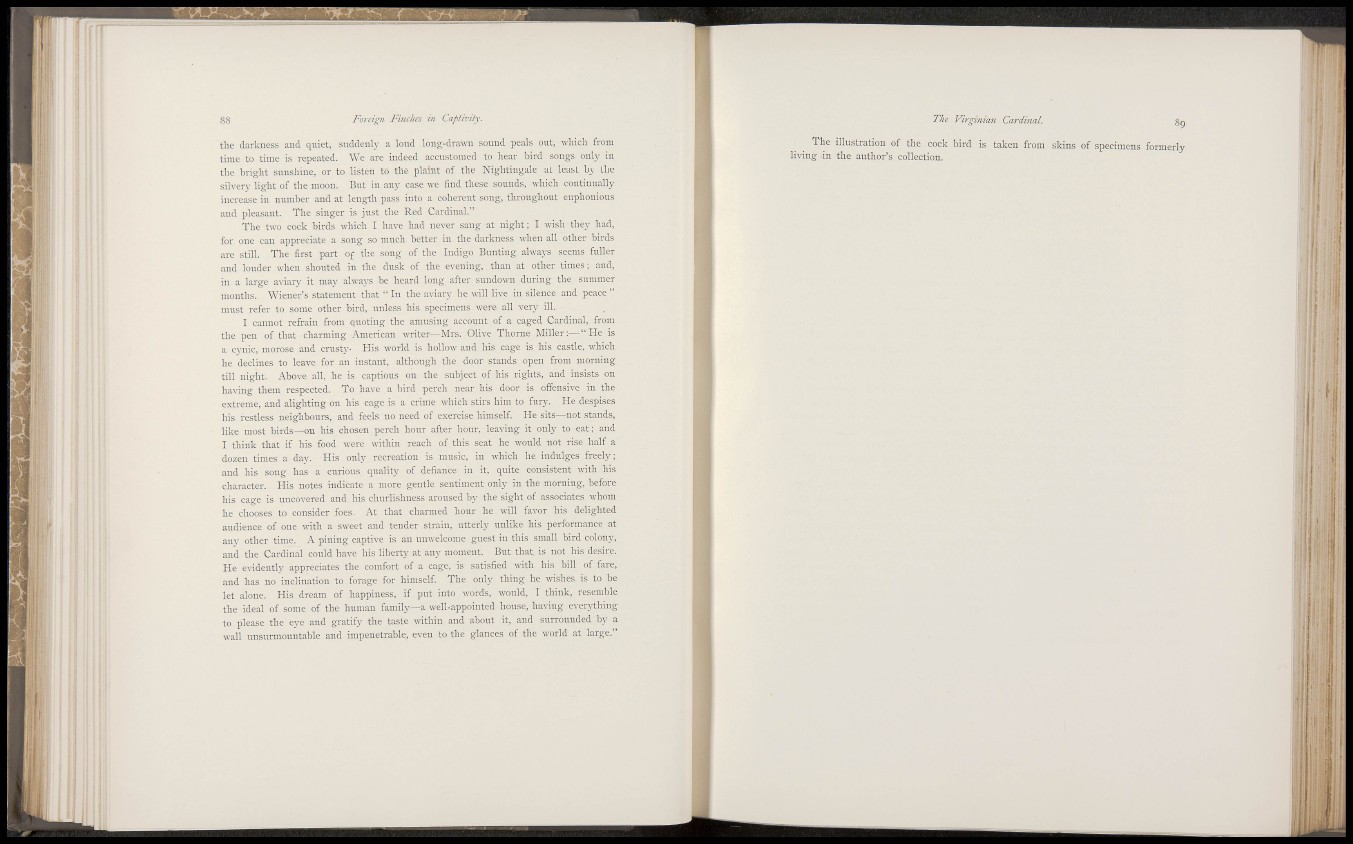
:
S8 Foreign Fincha, in Captivity.
'! L
Í i^'iij
Í
the darkness and quiet, suddeiih* a loud long-drawn sound peals out, which from
time to time is repeated. We are indeed accustomed to hear bird songs only in
the bright sunshine, or to listen to the plaint of the Nightingale at least by the
silverj- light of the moon. But in an)- case we find these sounds, which continually
increase in number and at length pass into a coherent song, throughout euphonious
and pleasant. The singer is just the Red Cardinal."
The two cock birds which I have had never sang at night; I wish they had,
for one can appreciate a song so much better in the darkness when all other birds
are still. The first part of the song of the Indigo Bunting always seems fuller
and louder when shouted in the dusk of the evening, than at other times; and,
in a large aviary it nmy always be heard long after sundown during the summer
months. Wiener's statement that " In the aviary he will live in silence and peace"
must refer to some other bird, unless his specimens were all ver)- ill.
I cannot refrain from quoting the amusing account of a caged Cardinal, from
the pen of that channing American writer—Mrs. Olive Thome Miller:—"He is
a c}-nic, morose and crusty- His world is hollow and his cage is his castle, which
he declines to leave for an instant, although the door stands open from morning
till night. Above all, he is captious on the subject of his rights, and insists on
having them respected. To have a bird perch near his door is offensive in the
extreme, and alighting on his cage is a crime which stirs him to fury. He despises
his restless neighbours, and feels no need of exercise himself He sits—not stands,
like most birds—on his chosen perch hour after hour, leaving it only to eat; and
I think that if his food were within reach of,this seat he would not rise half a
dozen times a day. His only recreation is music, in which he indulges freely;
and his song has a curious quality of defiance in it, quite consistent with his
character. His notes indicate a more gentle sentiment only in the morning, before
his cage is uncovered and his churlishness aroused by the sight of associates whom
he chooses to consider foes. At that charmed hour he will favor his delighted
audience of one with a sweet and tender strain, utterly unlike his performance at
any other time. A pining captive is an unwelcome guest in this small bird colony,
and the Cardinal could have his liberty at any moment. But that is not his desire.
He evidently appreciates the comfort of a cage, is satisfied with his bill of fare,
and has no inclination to forage for himself. The only thing he wishes is to be
let alone. His dream of happiness, if put into words, would, I think, resemble
the ideal of some of the human family—a well-appointed house, having everything
to please the eye and gratify the taste within and about it, and surrounded by a
wall unsurmountable and impenetrable, even to the glances of the worid at large."
i! t
The Virginian Cardinal. gg
The illustration of the cock bird is taken from skins of specimens formerly
living in the author's collection.
; "l- i;
•.r
. iíí'.'i!
. ill i
'1 •; I
I r